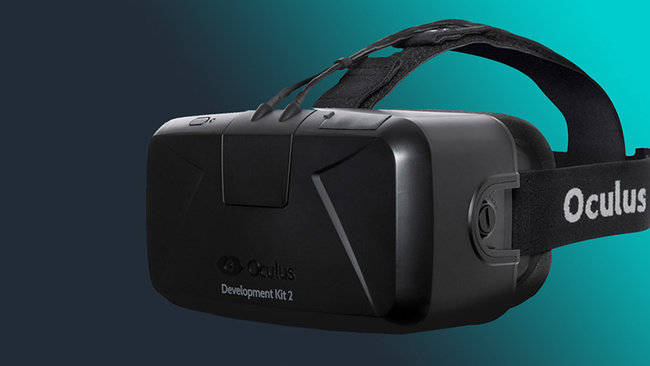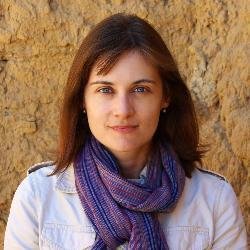#GLAMVR16 26.08.2016
AIM:
- #1 1 day workshop: 3D immersive, experiential, 3D technologies, Digital Humanities tools and resources, digital archives & related applications, UNITY & Augmented Reality workshops.
- #2 We present our projects at that workshop and a month later meet to review progress & research outputs.
- #3 A Cultural Hackathon with Curtin Library and other GLAM partners: programmers and others spend a day creating software prototypes from cultural datasets (prize for best project but the IP will be open source and contestants may be invited into the research projects or related grant applications).
- #4 Equipment for prototypes & showcases for future grants. VR headsets, and AR equipment to be loaned out from MCCA store to postgraduates and students.

Colleagues
|
Janice Chan |
Curtin University Library |
|
A freelance software developer and consultant based in Brisbane, Australia. |
|
|
Assist. Professor Elaine Sullivan |
University of California, Santa Cruz, USA, Digital Karnak |
|
Dominic Manley |
local IT-AR expert, http://dominicmanley.com/ |
|
Michael Wiebrands |
Local 3D-Unity expert, www. morfaine.com |
And introducing Beata Dawson, PhD Student
Talks & worshop held at HiVE
inside John Curtin Gallery, Curtin Uni
LOCATION
26 August 2016 Programme
START
|
FINISH
|
Session title
|
PRESENTER
|
9:00
|
9:10
|
Introductions
|
Erik Champion
|
9:10
|
9:50
|
Digital Karnak
|
Elaine Sullivan, UCSC USA
|
9:50
|
10:30
|
Linked Open Data Visualisation
|
Conal Tuohy, Brisbane
|
10:30
|
11:00
|
MORNING TEA
|
|
11:00
|
11:10
|
Making collections accessible in an online environment
|
Lise Summers
|
11:10
|
11:30
|
Digital scholarship, makerspaces and the library
|
Karen Miller
|
11:30
|
11:50
|
Digital Heritage Interfaces and Experiential Media
|
Erik Champion
|
11:50
|
12:00
|
Simple Biometric Devices for Audience Engagement
|
Stuart Bender
|
12:00
|
12:20
|
Usability of interactive digital multimedia in the GLAM sector
|
Beata Dawson
|
12:20
|
12:40
|
Emotive Media - Visualisation & Analysis of Human Bio-Feedback Data
|
Artur Lugmayr
|
12:40
|
13:00
|
Visualising information with RAM iSquares
|
Pauline Joseph
|
13:00
|
13:30
|
LUNCH
|
|
AR-VR workshop
|
|
||
START
|
FINISH
|
Session title
|
PRESENTER
|
13:30
|
15:00
|
digital workflows (UNITY)
|
Michael Wiebrands
|
15:00
|
16:30
|
Augmented Reality
|
Dominic Manley
|
16:30
|
18:00
|
final questions/social networking/ SUNDOWNER
|
Centre for Aboriginal Studies Foyer (Building 211)
|
Prof. Erik Champion, Curtin
Intro to #GLAMVR16 SLIDES here
Image on screen from Dr Jeffrey Jacobson, http://publicVR.org
MCCA Strategic Grant: 3 Themes
1.Digital Heritage: Workflows & issues in preserving, exporting & linking digital collections (especially heritage collections for GLAM.
2.Scholarly Making: Encourage makerspaces & other activities in tandem with academic research.
3.Experiential Media: Develop AR/VR & other new media technology & projects esp. for humanities.
Dr. Elaine A Sullivan, Assistant Professor, Department of History, UCSC, discussed:
Digital Karnak: an experiment in publication and peer review of interactive, three-dimensional content..
Her goals:
- To integrate scholarly textual argumentation with modeled space
- Dynamic interaction within the model in simple and open- access platform
- Integration of multi-media video and color images
- Accessible metadata and paradata (data recording the process of building the model and choices made)
- Availability of individual assets for download & reuse

Conal Tuoghy
Blog post + slides are on his blog here
My aims were:
At a tactical level, to explain the basics of Linked Data from a technical point of view (i.e. to answer the question “what is it?”); to show that it’s not as hard as it’s usually made out to be; and to inspire people to get started with generating it, consuming it, and visualising it.
At a strategic level, to make the case for using Linked Data as a basis for visualisation; that the discipline of adopting Linked Data technology is not at all a distraction from visualisation, but rather a powerful generic framework on top of which visualisations of various kinds can be more easily constructed, and given the kind of robustness that real scholarly work deserves...
Dr Lise Summers, Curtin
"Making collections accessible in an online environment"
- "Are we digitizing the right things, and are presenting them in the right way?" (http://www.slideshare.net/Lises2/beyond-digitisation-sharing-digital-resources-linked-data-and-schrodingers-cat)
-
Lesson 1 – GLAM organisations do have cool stuff to use, but we may not present it in a useful way for research…
-
Lesson 2 – we need to talk to each other before starting the big projects, about access, about formats and about what resources are needed
-
Lesson 3 - talk to each other!
Dr Karen Miller
Digital scholarship, makerspaces and libraries
..Digital scholarship is a broad term and can mean a number of different things. One definition that captures some of its complexity is “the use of digital evidence and method, digital authoring, digital publishing, digital curation and preservation, and digital use and reuse of scholarship.” (Abby Smith Rumsey, 2011)
https://infoliterati.com/2016/09/16/digital-scholarship-makerspaces-and-libraries/

Prof. Erik Champion, Curtin
Dr. Stuart Bender, Curtin
Simple Biometric Devices for Audience Engagement
-
Interpretation of discursive material (eg., “reported realism”)
-
Observation
-
Surveys
-
Simple biometrics
-
Advanced biometrics
Beata Dawson, PhD student, Curtin
Usability of interactive digital media in the GLAM Sector
Assoc. Prof. Artur Lugmayr, Curtin
- Trigger Peak of Expectations
- Practical Applications
- Affective Computation
- http://muvis.cs.tut.fi/index.html
- In the Future… we need a ‘cognitive’ conveyer belt for knowledge and wisdom
Dr Pauline Joseph, Curtin
Visualising Information with RAM iSquares
For her presentation, Pauline evaluated the decision-making of the participants using iSquares set up on 5 large work tables (no chairs) so that participants could sort the iSquares standing around the tables. Here she is examining her PhD student's work on the Markham Project (Beata Dawson)
Michael Wiebrands
Trove and Unity
Dominic Manley
Augmented Reality & Unity
AIM: Encourage VR uptake amongst humanities academics
Image from an earlier Augmented Reality workshop organised by the Curtin University Library Makerspace
Recall Main Objectives
- Encourage humanities (DH), connect researchers, tools & skills.
- Get people together to discuss projects-receive feedback
- Push forward prototypes and proof-of-concepts
- Uncover design ideas & datasets for Cultural Makathon in Nov..
Main outcomes
- Book chapter accepted, associated with Dr Michael Oven's WAND grant, VR equipment bought, workshop, seminars & makathon.
- Talks: 49, workshop: 34; Cultural Makathon: 20 registrations.
UCSC, AVRN, Landgate, State Library & Museum, CSIRO, Gaia resources, Scitech & CIC involved. - Discussing 2 ARC linkages, 2017 event (for orientation or www.web2017). Inspired CAA2017 session (accepted).
- Dataset resources: TROVE API, Data.wa.gov.au, Curtin library links.
Thanks to everyone!